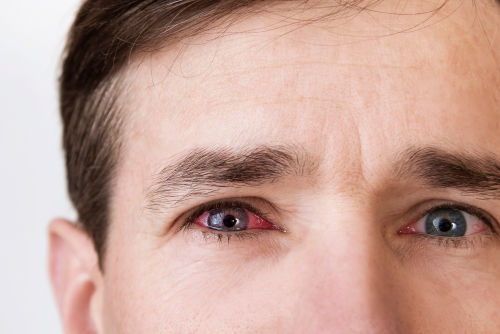What to do about pink eye

What to do about pink eye
Pink eye is an inflammation of the conjunctive and can be caused by viruses, bacteria, or other etiologies. To properly deal with pink eye, you should be familiar with its causes, symptoms, and how to treat it.
Causes
Pink eye is one of the most common infections among children and adults. Inflamed blood vessels in the conjunctiva make the eye appear red. Causes of pink eye include:
Causes of inflammation include:
- Viruses – this is one of the most common causes and an example is the common cold
- Bacteria – Common types of bacteria that cause bacterial conjunctivitis include Staphylococcus aureus, Haemophilus influenzae, Streptococcus pneumonia and Pseudomonas aeruginosa
- Allergens – This includes molds, pollen or anything else that causes allegies
- Irritating substances – This includes shampoos, cosmetics, contact lenses, dirt, smoke and pool chlorine
- Sexually transmitted infections (STIs) – such as herpes simplex, gonorrhea, or chlamydia
- A foreign object in your eye

Symptoms
With pink eye, the white parts of your eye look red or pinkish and the eyelids may be puffy. There can also be discharge and crusting around the eyelid. Other symptoms to look for include:
Symptoms of pink eye include:
- Redness in the white of your eye or inner eyelid
- Increased tearing
- Thick yellow discharge that crusts over your eyelashes, especially after sleep
- Green or white discharge from your eye
- Gritty feeling in one or both eyes
- Itchy eyes (especially in pink eye caused by allergies)
- Burning eyes (especially in pink eye caused by chemicals and irritants)
- Blurred vision
- Increased sensitivity to light
- Swollen eyelids
Management
If experiencing symptoms of pink eye, visit your provider and they will be able to diagnose you with a history and your symptoms. If bacteria is suspected, a swab may be done to test what is causing it. If it is bacteria, you will be prescribed antibiotics in the form of eye drops or pills. It should improve within a week and it is recommended to wash linens, pillowcases, and towels to avoid reinfection.
Pink eye causes by viruses does not require treatment unless it is caused by and STI or herpes zoster. In that case, antivirals will be prescribed. Pink eye caused by bacteria or virus is highly contagious and it is recommended to stay home from work or school until no longer having symptoms.
For pink eye caused by an irritating substance, rinse eyes out with water and symptoms should improve. Allergic pink eye can be treated with anti-histamines, steroids, or decongestants.
Pink eye is not usually a serious condition and most cases of mild to moderate usually clear on their own. The best thing you can do is take the necessary steps to avoid spreading pink eye to others or getting a repeat case of it.
Summary:
- Inflammation of the conjunctiva, commonly caused by viruses (e.g., the common cold), bacteria, allergens, irritating substances, sexually transmitted infections, or foreign objects.
- Red or pinkish appearance of the eyes, swollen eyelids, increased tearing, discharge with crusting, gritty feeling, itchy or burning eyes, blurred vision, and sensitivity to light.
- Consult a healthcare provider for diagnosis based on history and symptoms; bacterial cases may involve swab tests. Antibiotics (eye drops or pills) for bacterial pink eye, antivirals for viral cases, and home care, including washing linens and towels, for both.
- Bacterial and viral pink eye are highly contagious; individuals should stay home until symptoms resolve. Home care for irritant-induced pink eye involves rinsing eyes, and allergic cases can be treated with antihistamines, steroids, or decongestants.
- Most cases of mild to moderate pink eye resolve on their own. It is not usually serious, but precautions to prevent spreading or reinfection are essential.
- Taking necessary steps to avoid spreading pink eye to others and minimizing the risk of a recurrent case.

This article reviewed by Dr. Jim Liu, MD and Ms. Deb Dooley, APRN.
There’s nothing more important than our good health – that’s our principal capital asset.
#medical #telehealth #umedoc






